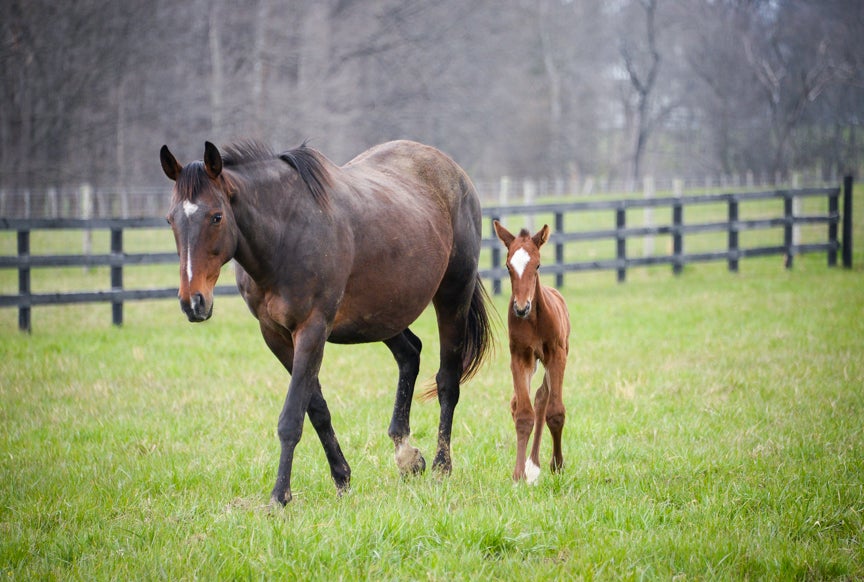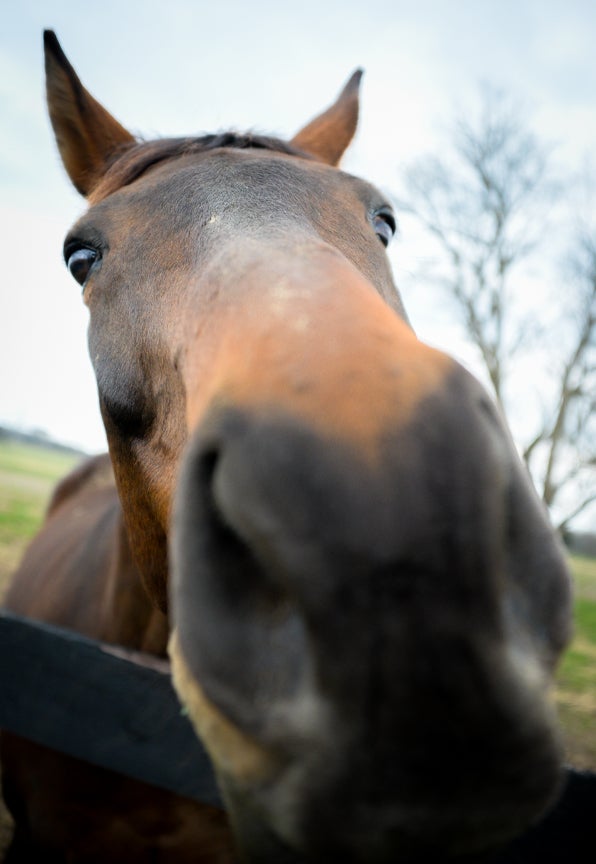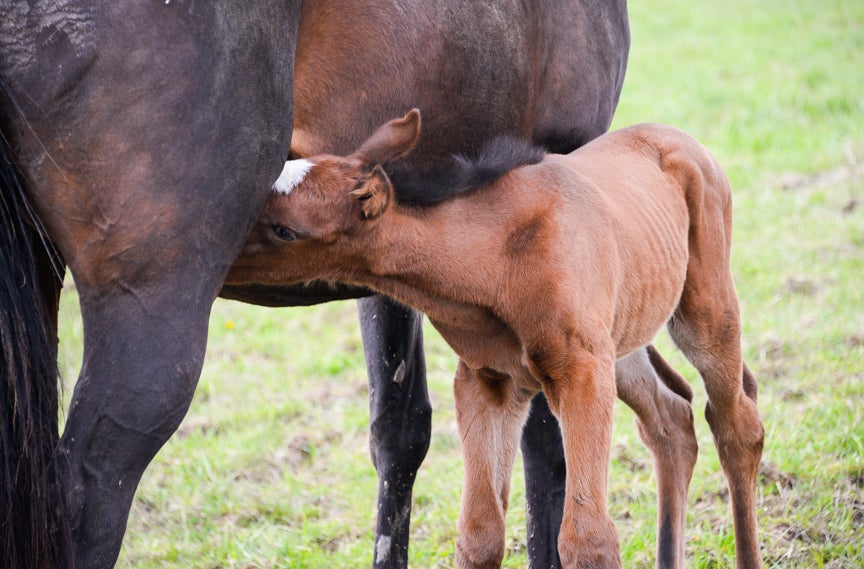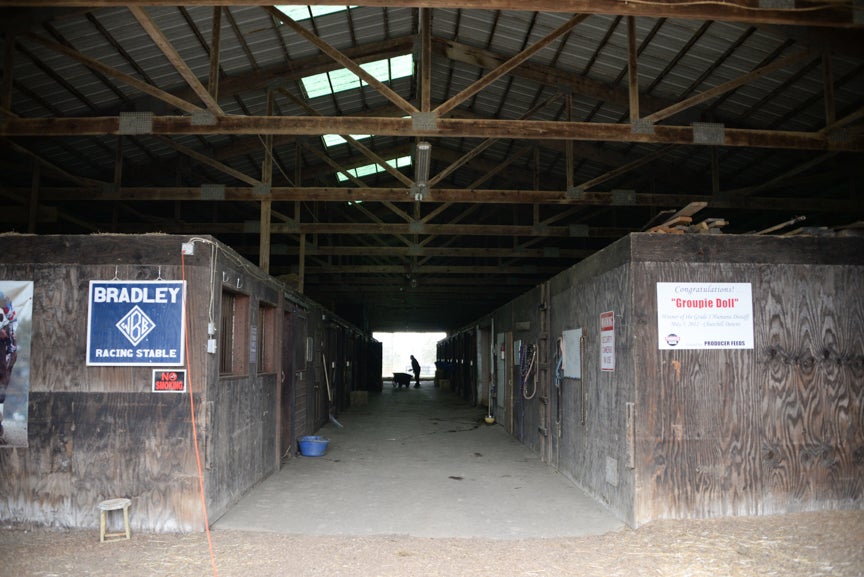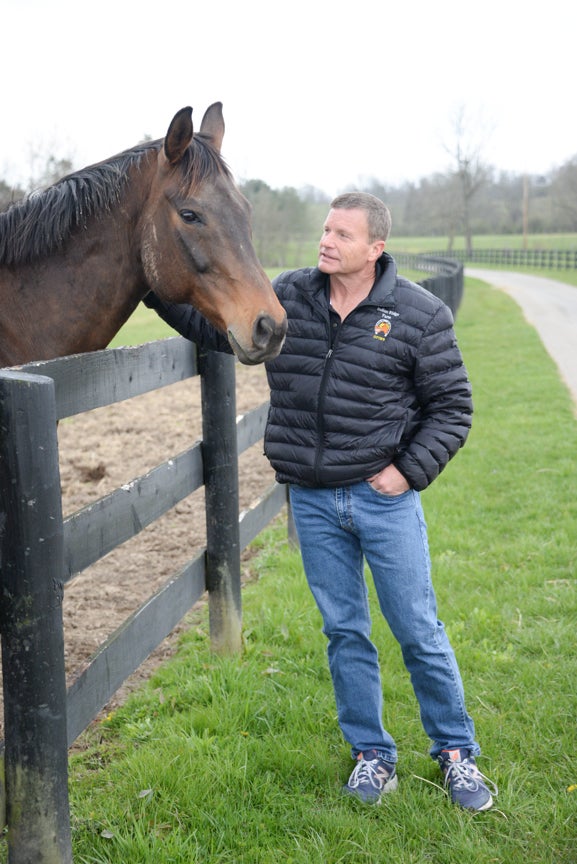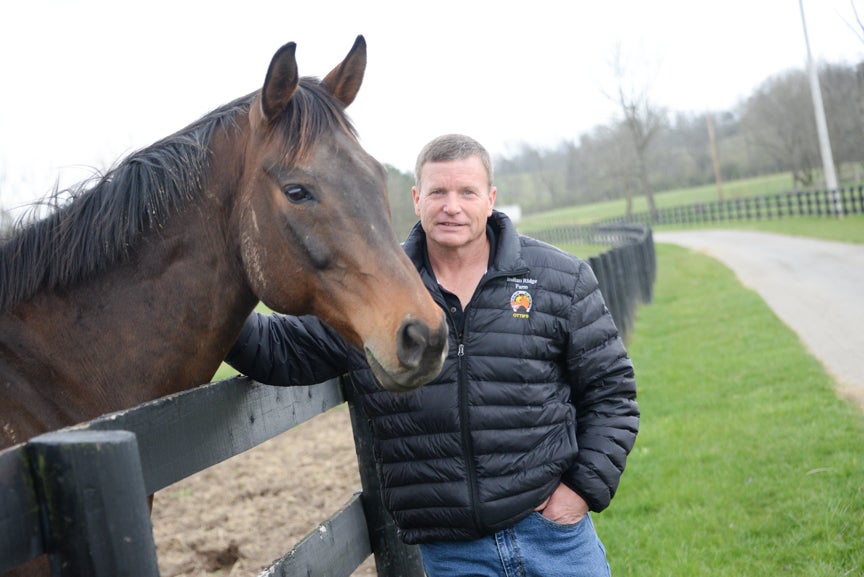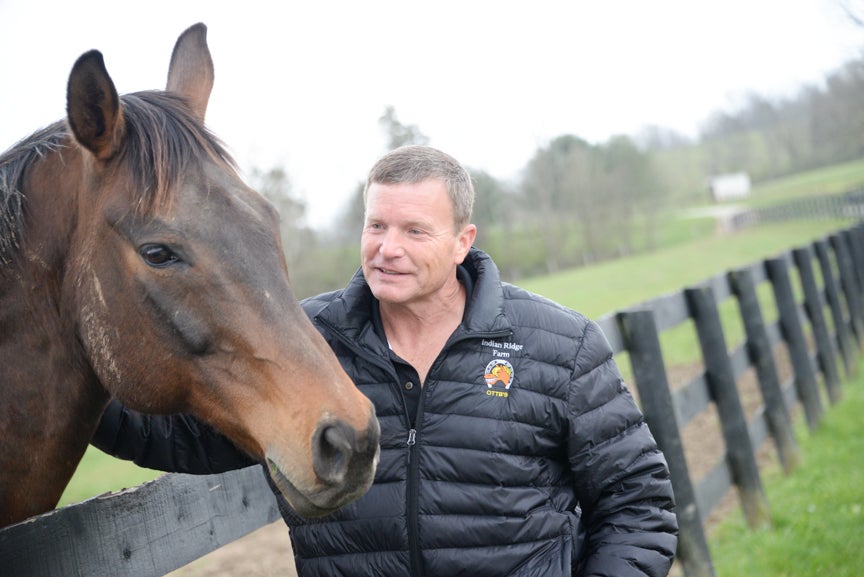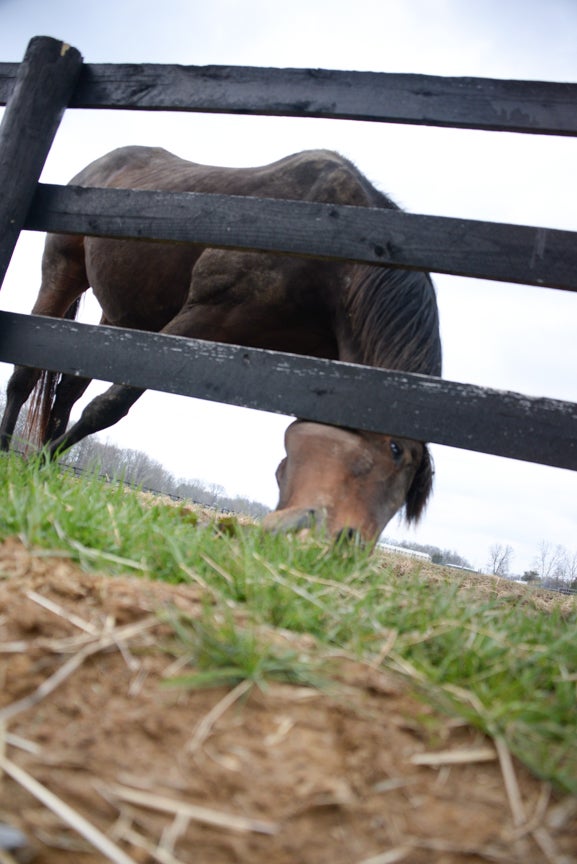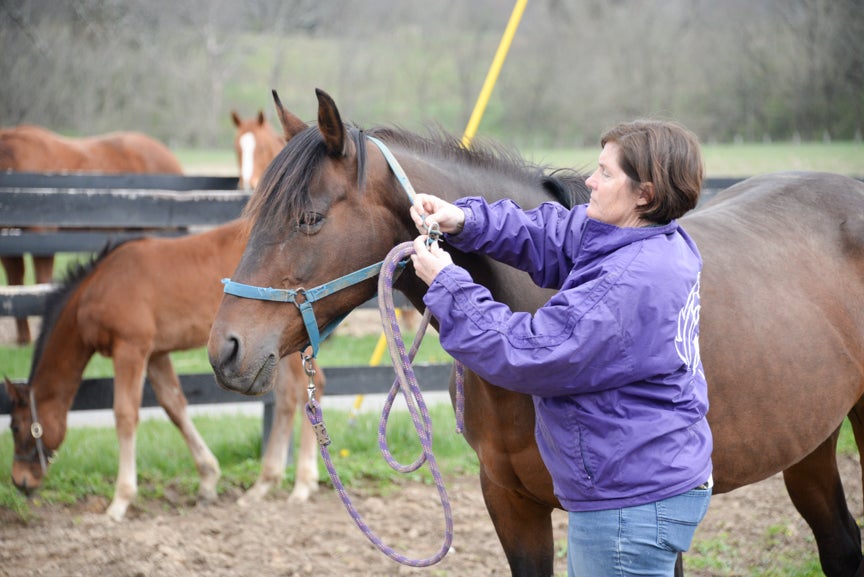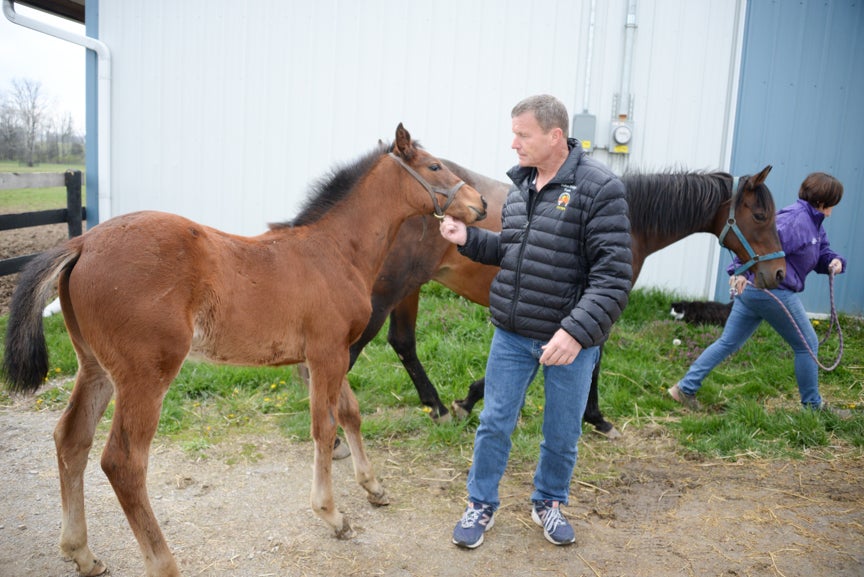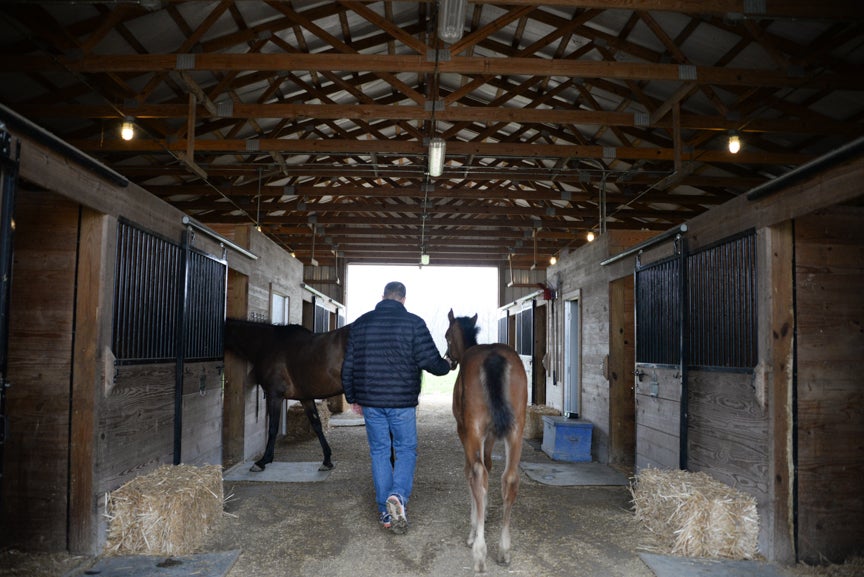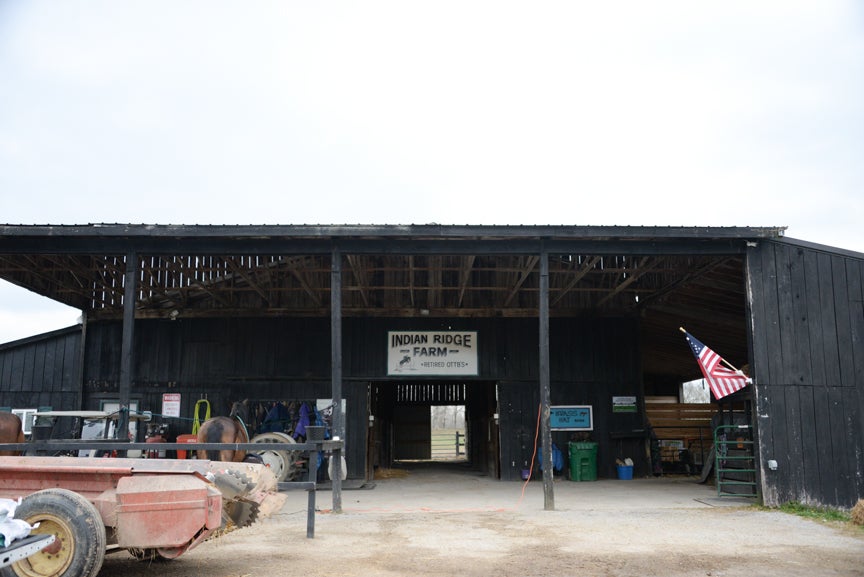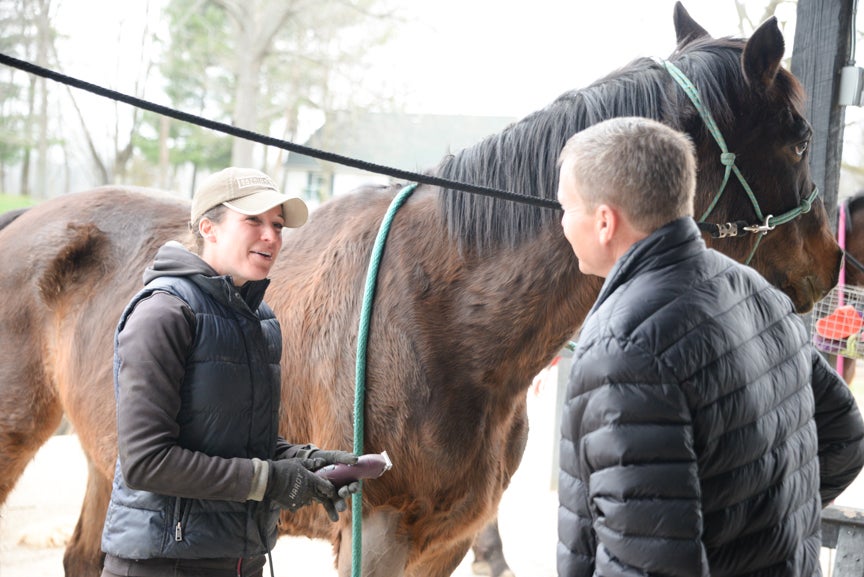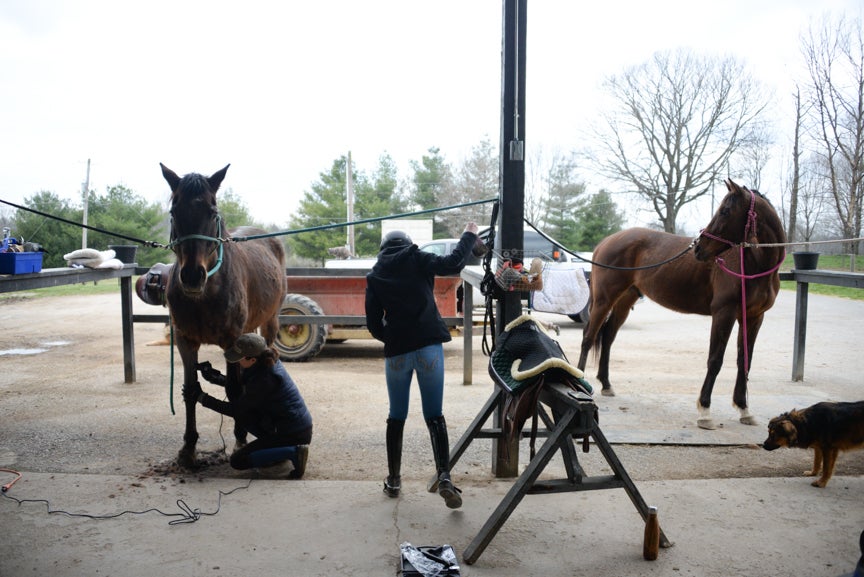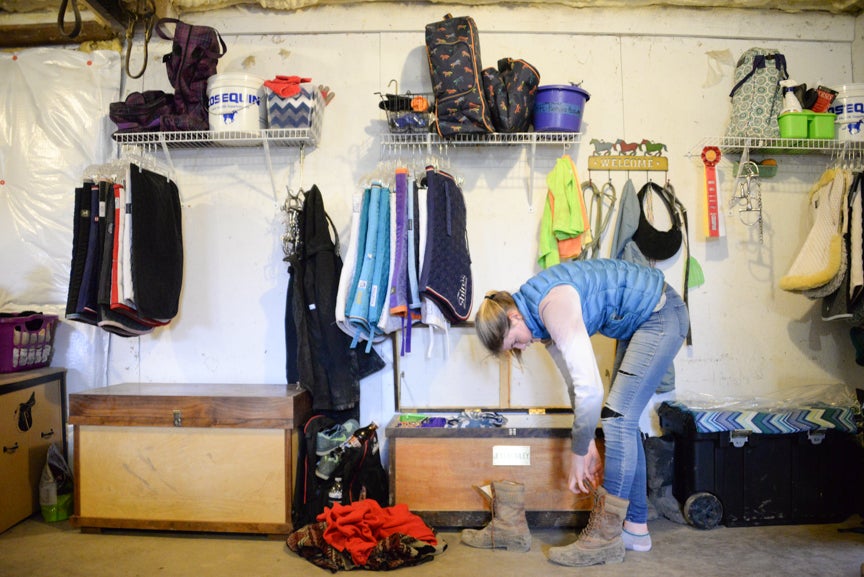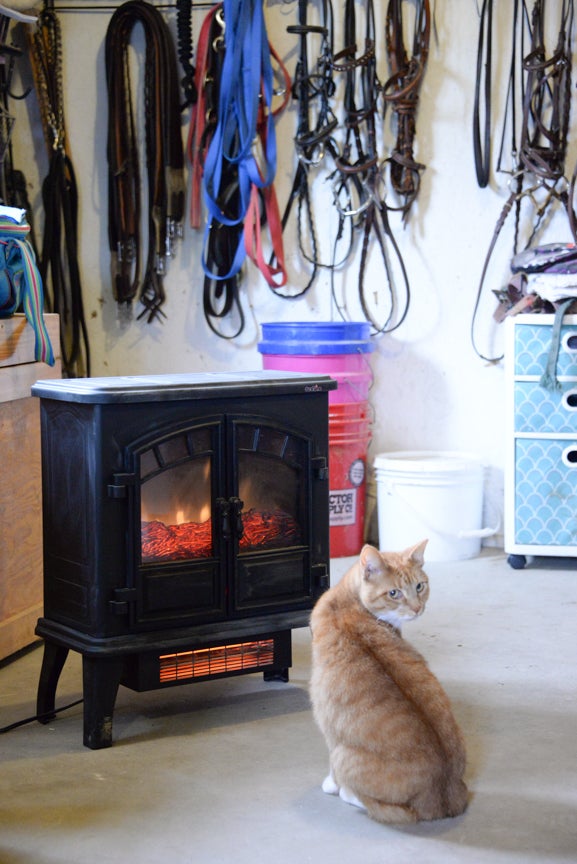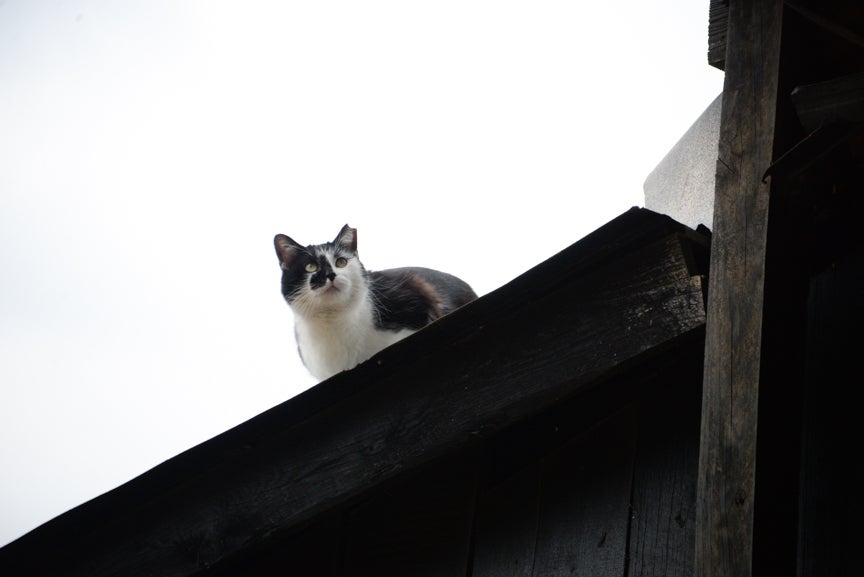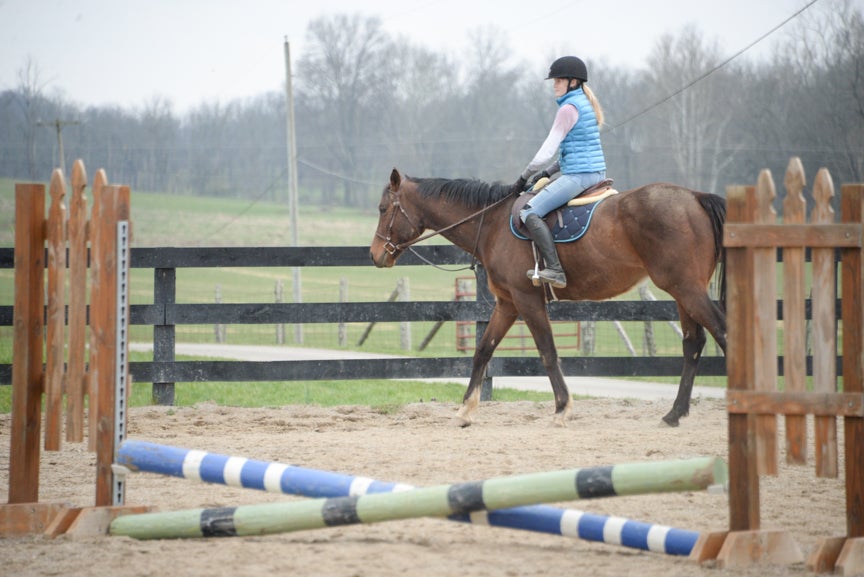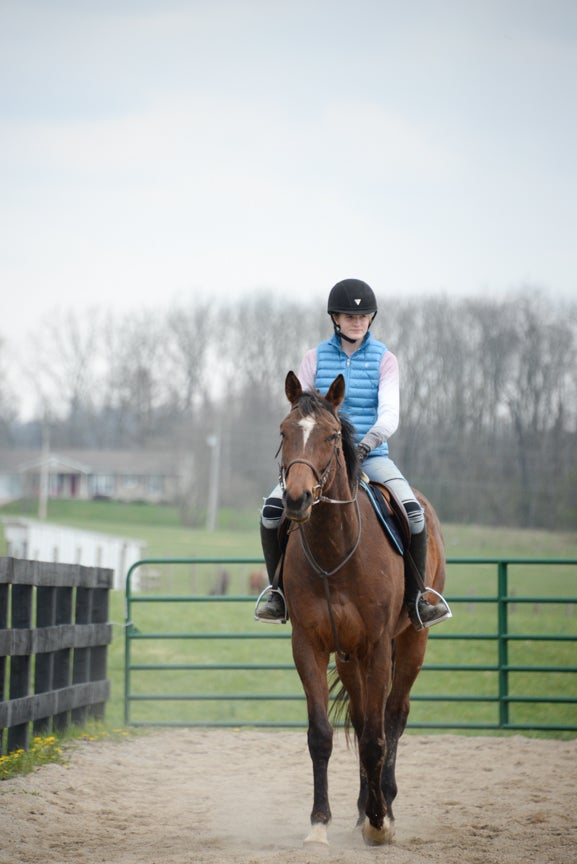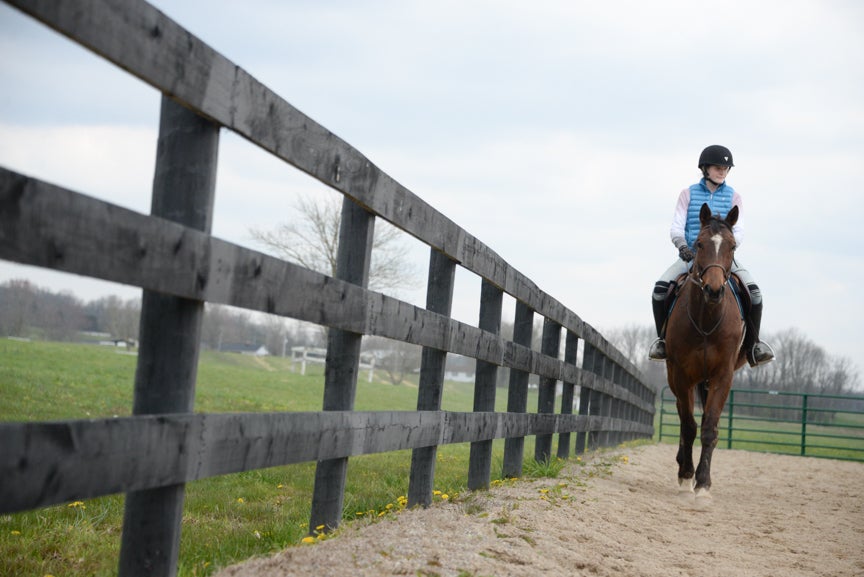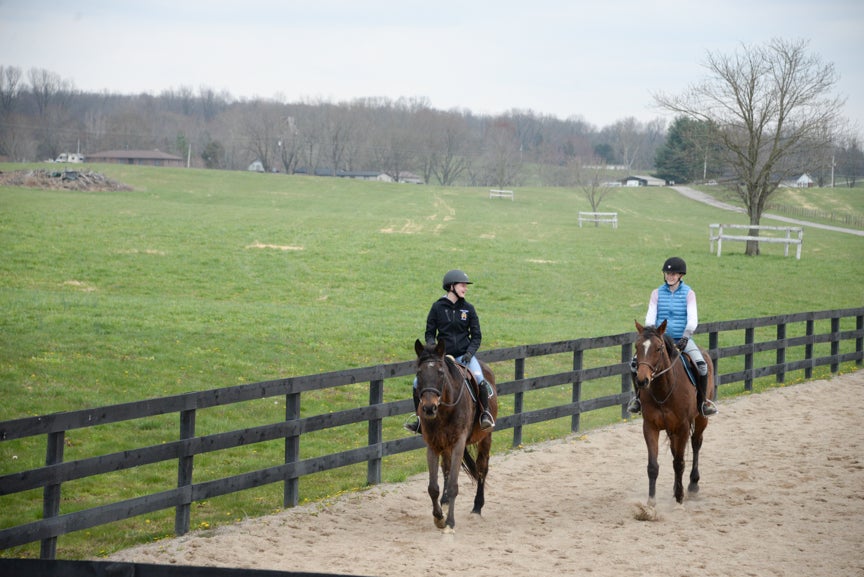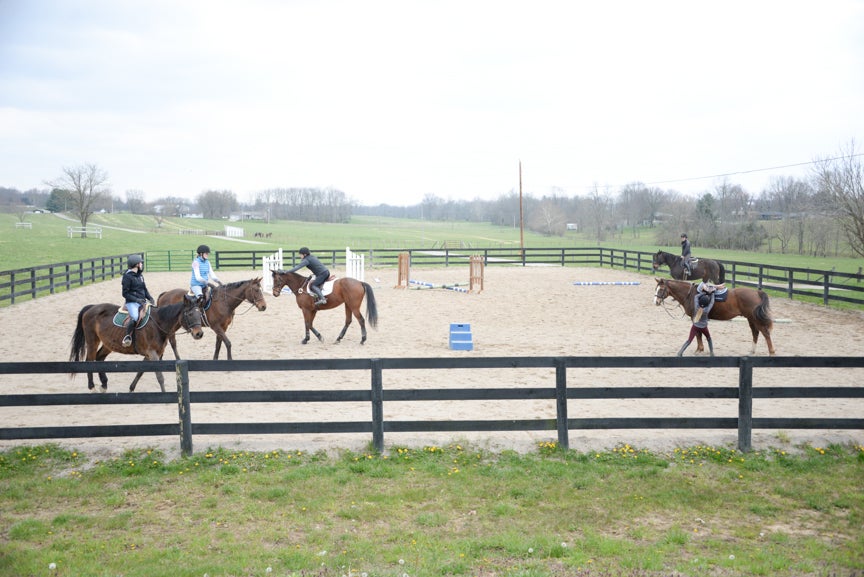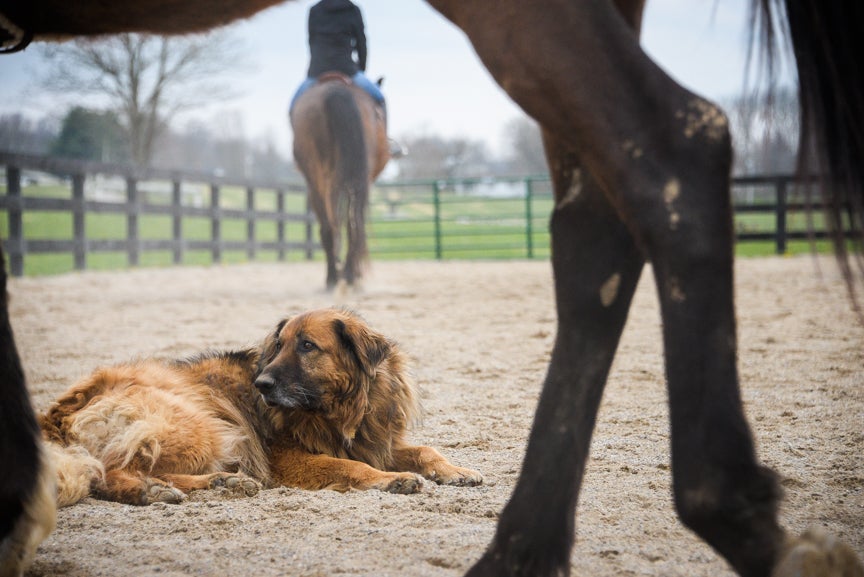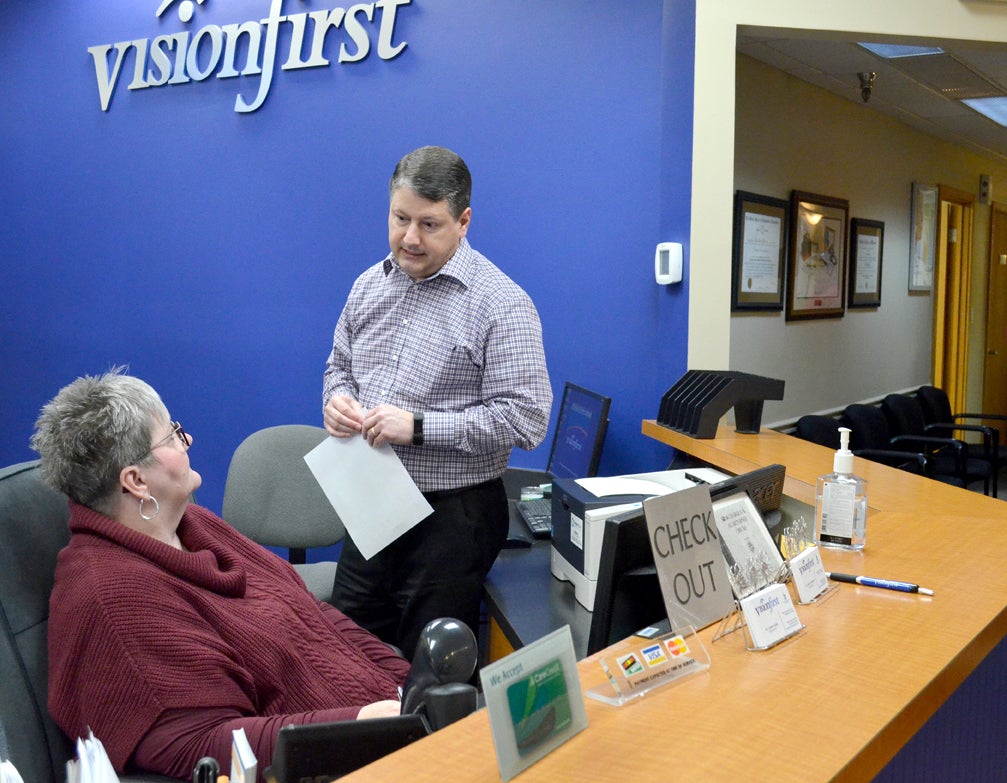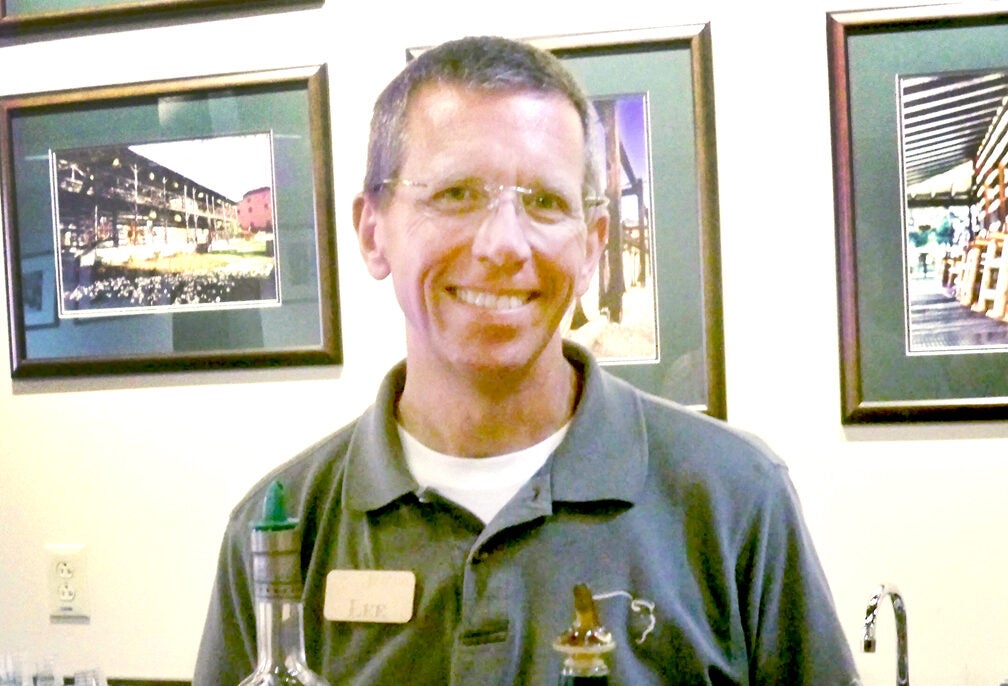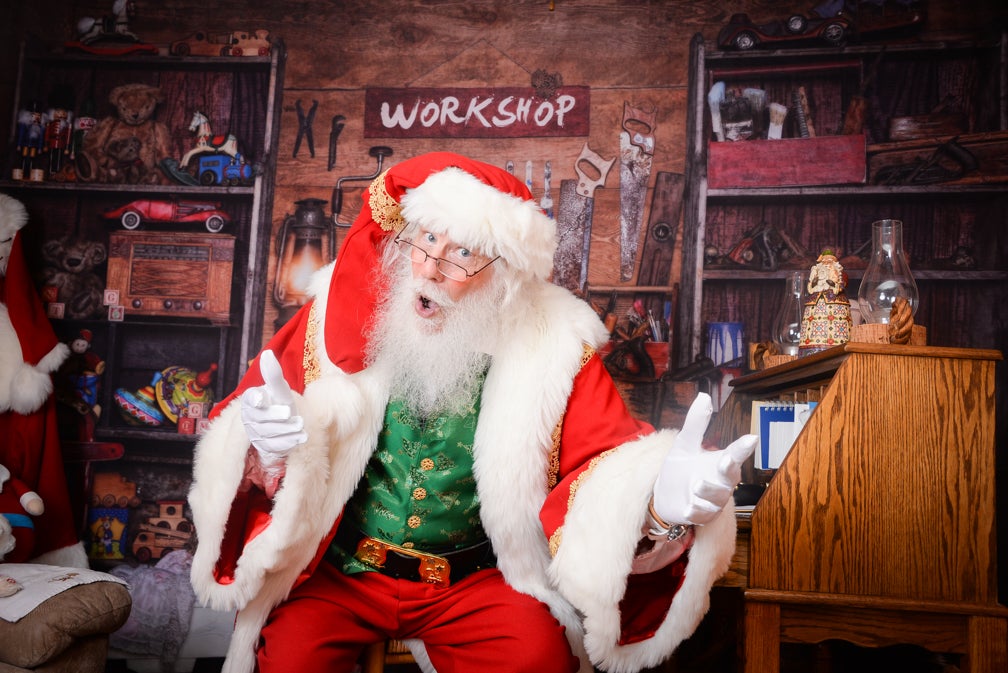William “Buff” Bradley starts his day long before the sun greets the horizon at his farm. He rises with his mind tuned to his horses. Most of his life has been devoted to the powerful, noble thoroughbred.
Buff’s father was Fred Bradley, a Frankfort attorney and Kentucky state senator who loved race horses. He bought Indian Ridge Farm in western Franklin County in the late 1960s and moved the family there when Buff was 9.
“My dad’s dream was to have racehorses,” Buff remembers. “When we bought the farm, it was a cattle farm. We developed it and pretty much turned it into a racehorse farm. It took a lot of years and we did a lot of things on the land so that we could have the horses.”
Buff says he was happy growing up on their family farm. “I loved being on the farm. I loved working. And I loved working with my dad,” he says.
Not only did Buff enjoy the farm, he loved everything about horses, including the racetrack.
“When my parents would go to the races, they would get a babysitter for my brother, two sisters and me. But I wouldn’t let them leave without me — I always went with them,” he says smiling.
Learning the business
Even though Fred Bradley loved racehorses, Buff says his father was not happy when he told his dad he wanted to work in the industry. After earning a business management degree from Kentucky State University in 1989, Buff was ready to make the leap.
“The day I graduated, I told him what I wanted to do and he was so mad at me. He loved the horse industry, but he was glad I had gone to school and wanted me to do something else, like running his trucking company. I said to him, ‘Look, I made it through school. I’m ready to go shovel muck.’”
Buff did just that. He spent five years training under Clarence Picou, who had worked many years for his father. “Clarence was in the midwest at places like Oaklawn Park in Arkansas, Remington Park in Oklahoma, Louisiana Downs in Shreveport,” he says.
Once, twice in a lifetime
When Buff returned to Frankfort, his father told him he was going to Keeneland and to buy two yearlings. Thinking his father was going to invest a large amount of money, Buff says he was surprised when he found out they only had $10,000.
With a small smile, Buff remembers, “We bought a colt for $4,000 and we bought the dam of Brass Hat for $5,000. Dad liked the pedigree and she was a gorgeous looking filly. We paid $3,500 for the stud fee to get Brass Hat. There’s definitely some luck involved in all of this. That dam never raced, but Brass Hat went on to win $2.1 million.”
The following year, Buff says they returned to Keeneland with more money and the intention to buy 10 horses.
“We bought eight and spent $120,000 including $25,000 for a nice filly that we both loved. That filly happens to be the dam of Groupie Doll. Groupie Doll won $2.5 million and we sold her for $3.1 million,” he says.
Brass Hat and Groupie Doll, according to Buff, are once in a lifetime horses.
“We’ve been very fortunate. We’ve had Grade 1 stakes winners who were born and raised on this farm,” he says. “That’s special. Probably not many owners foal their own champions.”
Doing what’s right for the horse
Buff has set up Indian Ridge Farm in three distinct sections, allowing him to take a horse from the moment they’re born to when they die. Kelly Schrader manages the farm and the layup section, which helps with the rehabilitation of horses as well as managing the horses coming in and out from the racetrack. Buff’s wife, Kim, works with the mares and foals. Maria Kabel heads up the newest section, which is the retirement area.
“The success of Brass Hat and Groupie Doll have made it possible for us to develop Indian Ridge into what it is today,” Buff explains. “I don’t know of any other trainer who does what I do. It’s probably not that they wouldn’t do it. They just don’t have the same circumstances or the opportunity to do it. I think having my own farm has made me a better trainer because I’m able to give my horses time on the farm. We’re in the business of taking care of horses.”
Brass Hat, who lives in stall No. 1 in the retirement section of Indian Ridge Farm, is now 17-years-old and occasionally likes to turn on the speed. The multi-million-dollar-winning horse seems to like the spotlight, perking up for visitors and the click of the camera.
“Brass and Elvis have been big buddies for more than 15 years now,” Buff says. Elvis, as he is lovingly called on the farm, is formally named King of Speed. He is a 19-year-old who won more than 20 races and earned more than $500,000.
Buff credits his dad and Clarence Picou with helping to shape his training philosophy. “They taught me to be patient raising horses, allow them to develop and then take care of them afterward. My dad always told me to take care of the horse and the horse will take care of you.”
Giving back
Being a horse trainer takes Buff to his headquarters at Churchill Downs most every day. In the winter, he travels to the south, either Florida or Louisiana, with his horses. He says it is a profession that is sometimes difficult because it takes him away from his wife and children for long periods.
One way he has stayed involved with his family is to become involved with the Franklin County 4-H Horse Club.
“During the nice months, we meet out at the farm so the kids can be around the horses and other animals. The last part of the meeting we may put them on a horse and lead them around so they get a feel for that,” Buff says.
Their daughter Jett, a Western Hills High School student, shows a horse named Closing Prize that her grandfather bred. “I think that’s pretty neat,” Buff remarks. “He had been raced and won a couple of times for us, but had a breathing problem. So, I retired him and gave him to Jett.”
Jett and others in the club even have a room in the retirement barn where they keep their equipment and display all of their ribbons.
Kim and Buff’s three children have all grown up on the farm. “Kory, Drew and Jett — they’ve all worked on the farm and they’re all are very experienced around horses,” Buff explains.
Besides being a leader with the Franklin County 4-H Horse Club, Buff also serves on the 4-H Council, the Franklin County Extension Board, the Kentucky Equine Education Project and the Kentucky Horsemen’s Benevolent Agency (KHBA).
“I probably have too much on my plate,” he says, “But I love doing it. I love giving back and having a say in things.”
Looking to the future
Buff says he’s grateful for his father. “The last 10 years of his life my dad got to be around two of the greatest horses of our decade with Brass Hat and Groupie Doll, knowing that he bred them, raised them and raced them. He reached what he had always dreamed of. And obviously, that’s what I dream of, too.”
Between training 30 to 40 horses and running the farm business, Buff says he is busy but is doing what he likes. “I’m comfortable with an average-sized stable so that I can have my hand on each horse,” he says.
What’s in the future? Like anyone in the horse racing industry, Buff says that the Kentucky Derby is always the ultimate goal. He comments,“You want to raise good horses and always have the best. But in the end, I really just want to do what’s best for the horse.”


